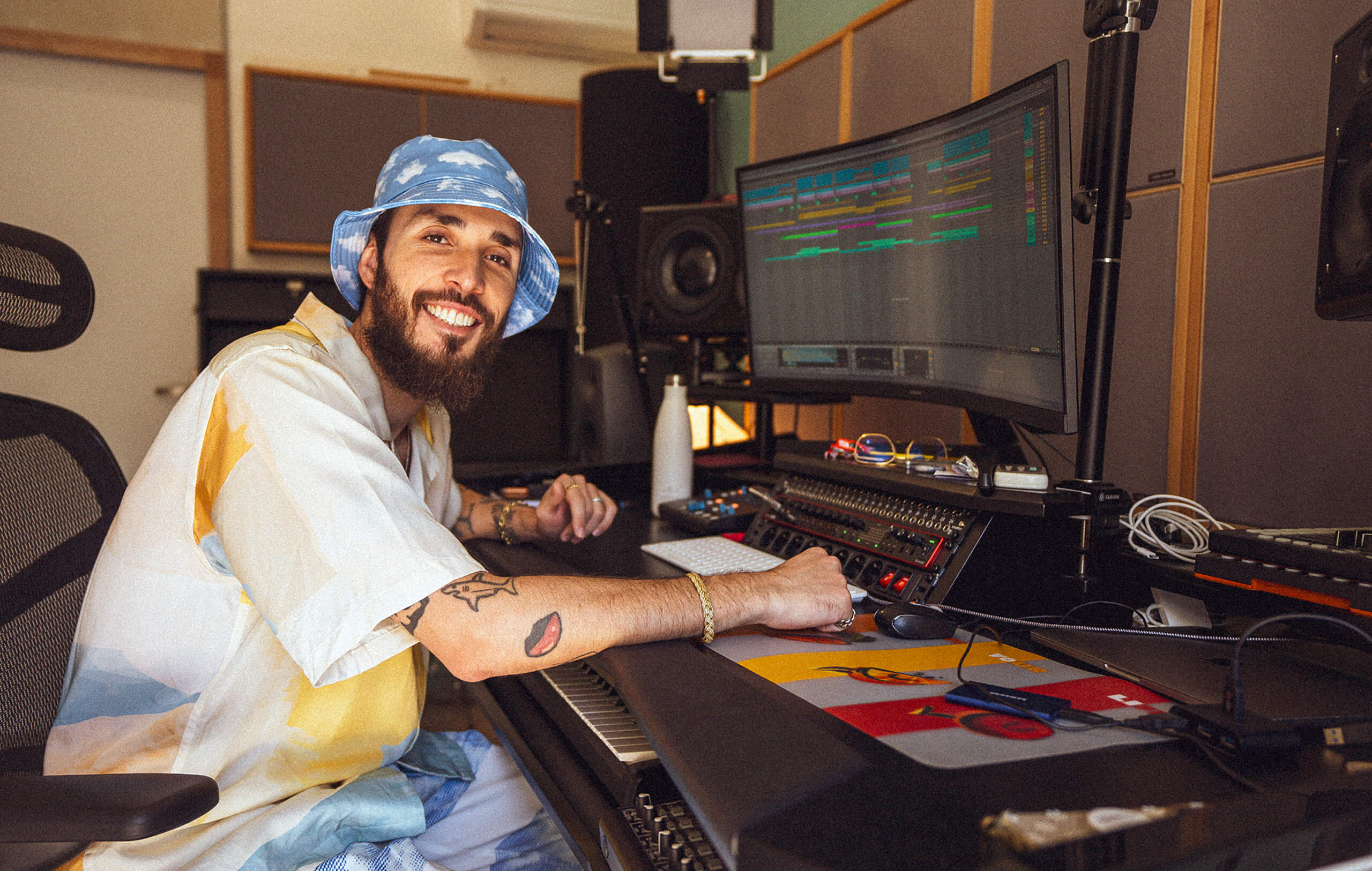
Folamour: “I love being an artist whose evolution and growth you can hear; the truth is, we get better with time”
The French groove-weaver peels back the curtain on his new album, Manifesto, talks about the regrets behind his famous Boiler Room moment and explains why escapes to nature are vital for his creativity
Image: Courtesy of Folamour
Folamour is beaming when he joins our interview. He’s wearing a bucket hat, as expected, and his cheek-to-cheek smile is infectious – we’ve barely started talking and we’re both chuckling to each other. It’s no surprise; the French producer is adored by fans and crowds across the world for his joyous demeanour, his elating, floor-filling DJ sets, and, of course, for the many hats he wears (literally and figuratively).
We’re here to talk about Folamour’s new album, Manifesto, which he says marks the end of a long period of finding himself. As a producer, DJ, musician, label owner, and free-spirited creative, Folamour – real name Bruno Boumendil – has had quite the journey since his debut EP, Deeply Rooted Vibes, in 2014. Bruno’s delighted to hear that I’ve been a fan since hearing his CellarDoor EP in 2015.
“That’s proper old-school Folamour,” he says with a laugh. “I listened back to [CellarDoor] a few months ago and was like, ‘Wow, I can’t believe this was me.’”
In the nine years since Folamour erupted into the electronic music scene, he’s released five albums, headlined myriad shows, started a label, and has gone down in Boiler Room history for a seriously FOMO-inducing set in 2019. Still, in making Manifesto, Bruno realised how much more he has to learn as an artist – and as a human.
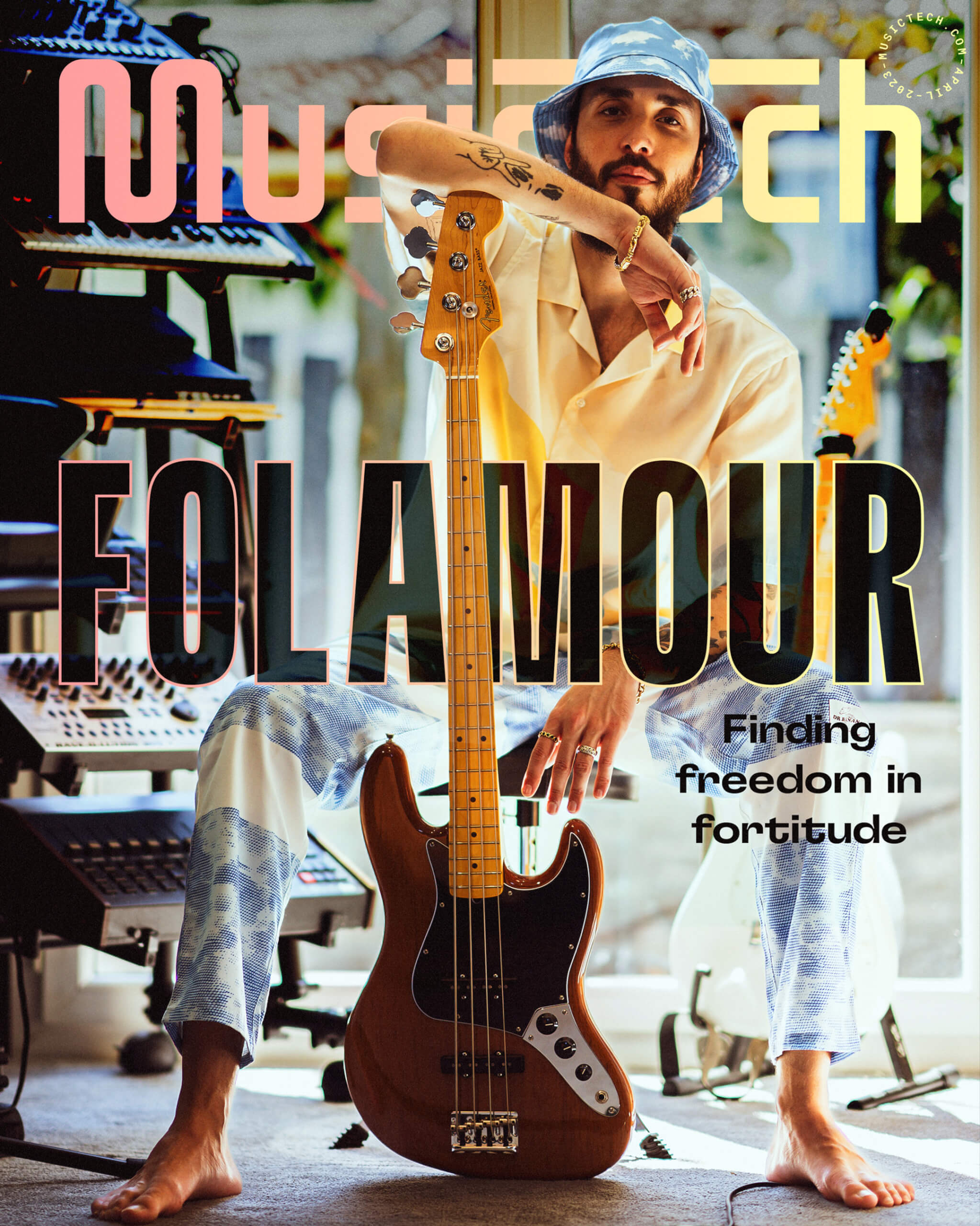
Speaking from his hometown of Marseille, Bruno recognises how his surroundings have impacted his fun-filled career. “In France, everybody knows that Marseille has a different vibe than the rest of France. It’s all about chaos and freedom. People feel free here but it’s also a really chaotic and hectic city. Everything is always so bizarre and messy. But it brings so much beauty and people are really open-minded. That was really inspiring for me when I moved back here.”
Bruno’s main studio is situated in his house but, for some of the tracks on this album, he made his way to Wisseloord Studio in the Netherlands (a place he felt to be “more serious and regulated”). This was his “first experience of having some time in a proper professional studio,” he says.
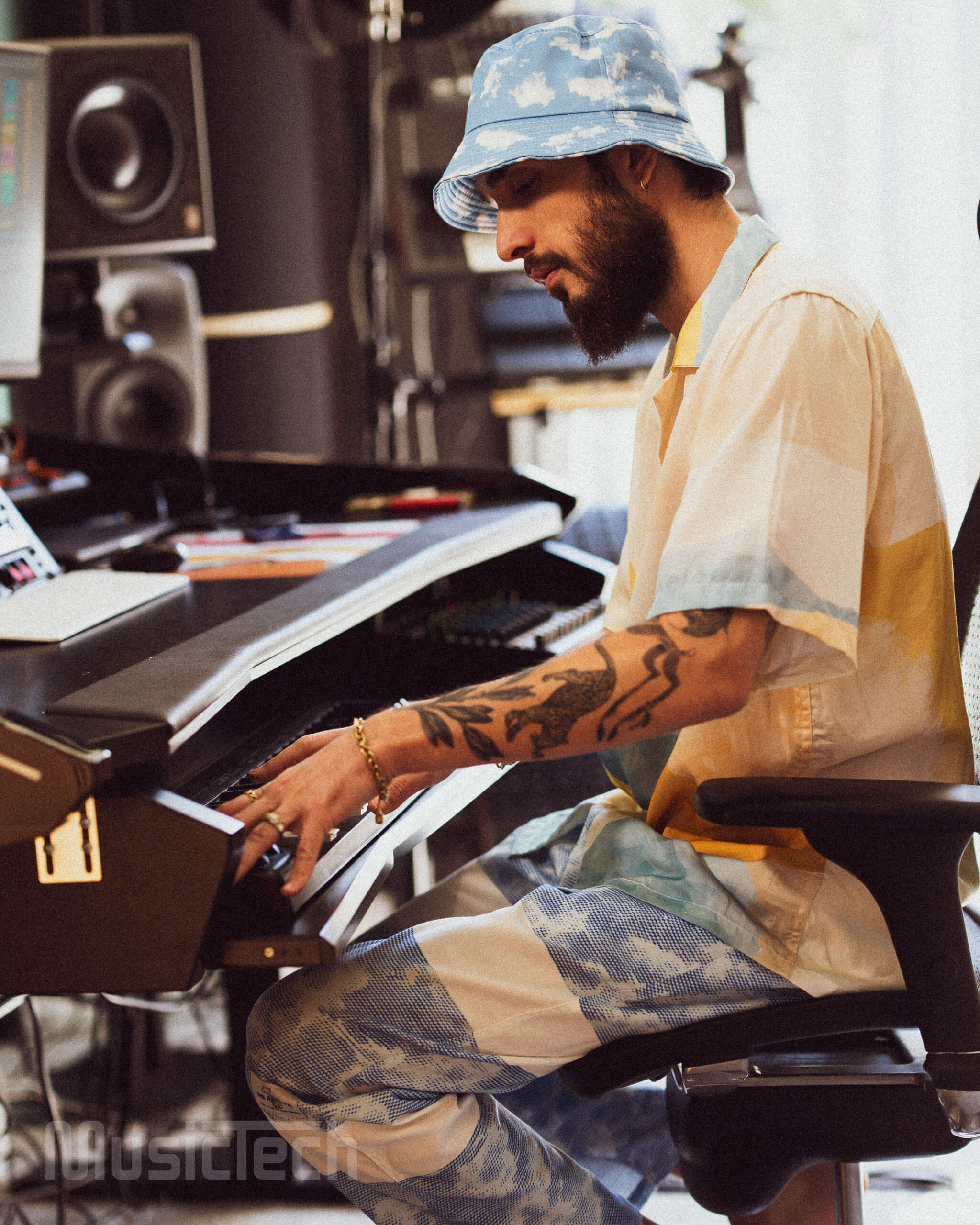
As first studio visits go, Wisseloord isn’t so bad; it’s been home to iconic records by artists such as Foo Fighters, The Cure, Phil Collins, The Rolling Stones, Sade, and countless others. However, it posed a starkly different creative practice than what Bruno’s used to.
“[My home studio] is more DIY, let’s say. So it was nice to be in a room where playing my music sounds exactly like it’s supposed to be…and to be able to improve my skills while working on monitors that were perfectly rendering the sound. Also, I had access to microphones and a bigger room to record violins, brass, and stuff like that.”
Listening back to Manifesto, Bruno can easily distinguish which of the 14 tracks were made in Wisseloord. You might be able to, as well.
The slick, laid-back lead single, Freedom, boasts a chorus packed with rich horns, recorded at the Netherlands-based studio. You’ll hear these uplifting brass sections throughout the album, as they make appearances in the recently-released track, Voyage, and the party-fuelled banger Poundland Anthem. Rounding out Folamour’s more “DIY” sound are tracks such as City Life and When A Piano Saves The Day. His vocal lines, too, like the irresistibly cool pitched-down part in Freedom, were captured at Wisseloord.
Being in these intense sessions at Wisseloord greatly helped Bruno develop as a creator. Not only working with “top-level musicians, and being to direct them,” but also the atmosphere he found himself in.
“When I’m making music at home, It’ll only be one or two days a week,” he says. “So having three weeks in a perfectly-made room for music was new to me. And I improved so much. After the three weeks, I came out of it being like, ‘Wow, there are so many things that I understand way better about how I create and what to do with my sound.’ I really felt that something changed in me that never did before.”
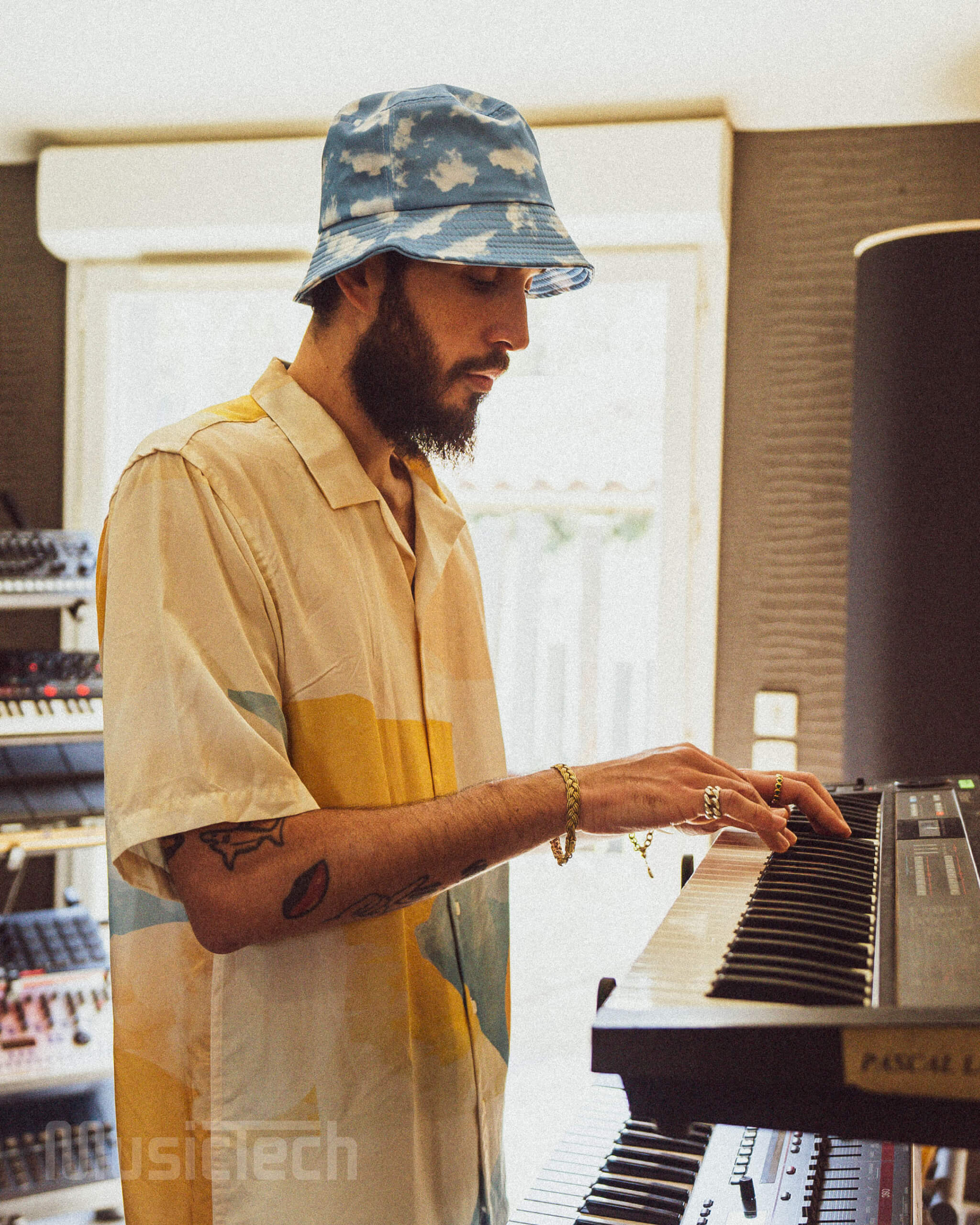
Producing an album might be seen as a studio-lead endeavour but, for Bruno, being away from the studio – and finding freedom from the chaos – is just as important as being in it. Fans of Folamour likely know that the French producer relishes his time in nature, away from the busy touring schedule and the pressures of being perpetually creative.
“I love it,” he says of his outdoor adventures. “Because it’s those moments where I finally feel at peace again. When I’m on the road, my mind is like a train station… I’m always thinking about everything. So these moments where I’m going away to rest, for holidays and beautiful [times] alone in nature are when I finally feel like the voices and the noises are going away. And I’m like, ‘Okay, I’m finally with myself, again, properly face to face with myself.’ These moments are so important for me.”
Unsurprisingly, it’s during these times that Bruno writes his most personal and introspective music.
“Freedom is clearly a song that I made when I was alone in the countryside,” he says. Take one listen to the lyrics, and you’ll hear how he wrestles with what’s expected of him as an artist.
“I got to not sing, I got to not smile,
I got to look good, when I’m losing my mind
I got to not smoke, I got to not breath
I got to not run cause I gotta look clean” – Freedom, Folamour
“I was looking at myself,” he continues, “and I was like, ‘Okay, what do I feel I am now? What are my feelings right now about myself; about everything that is asked of me?’”
Writing self-reflective music might come easily to some artists but Bruno usually prefers to create tracks that are more relatable to a universal audience. Finding the balance between creating and playing music for himself and for his fans can be tough but, fortunately, Bruno sees himself as the number-one Folamour fan.
“For me, I’m the first person in the audience, I’m the first person in the crowd,” he explains. “If I’m not dancing, something is wrong. When I’m listening to my own music, I try to separate myself from it. I’ve been making music for almost 10 years, and there are some songs that I forget that I’ve made. I listen to music on Spotify, and a track comes on and I’m like, ‘Wow, this track is cool. I don’t remember who it is.’ And I find out it’s myself, in a weird way.
“So even with Manifesto, sometimes I would sit and listen to it like I’m someone else, and try to understand the message. I try to put myself in the case of someone discovering it. And it’s really important for me to still enjoy it, no matter what. Because if I’m not one-hundred-percent a fan of something I do, it’s not meant to be out.”
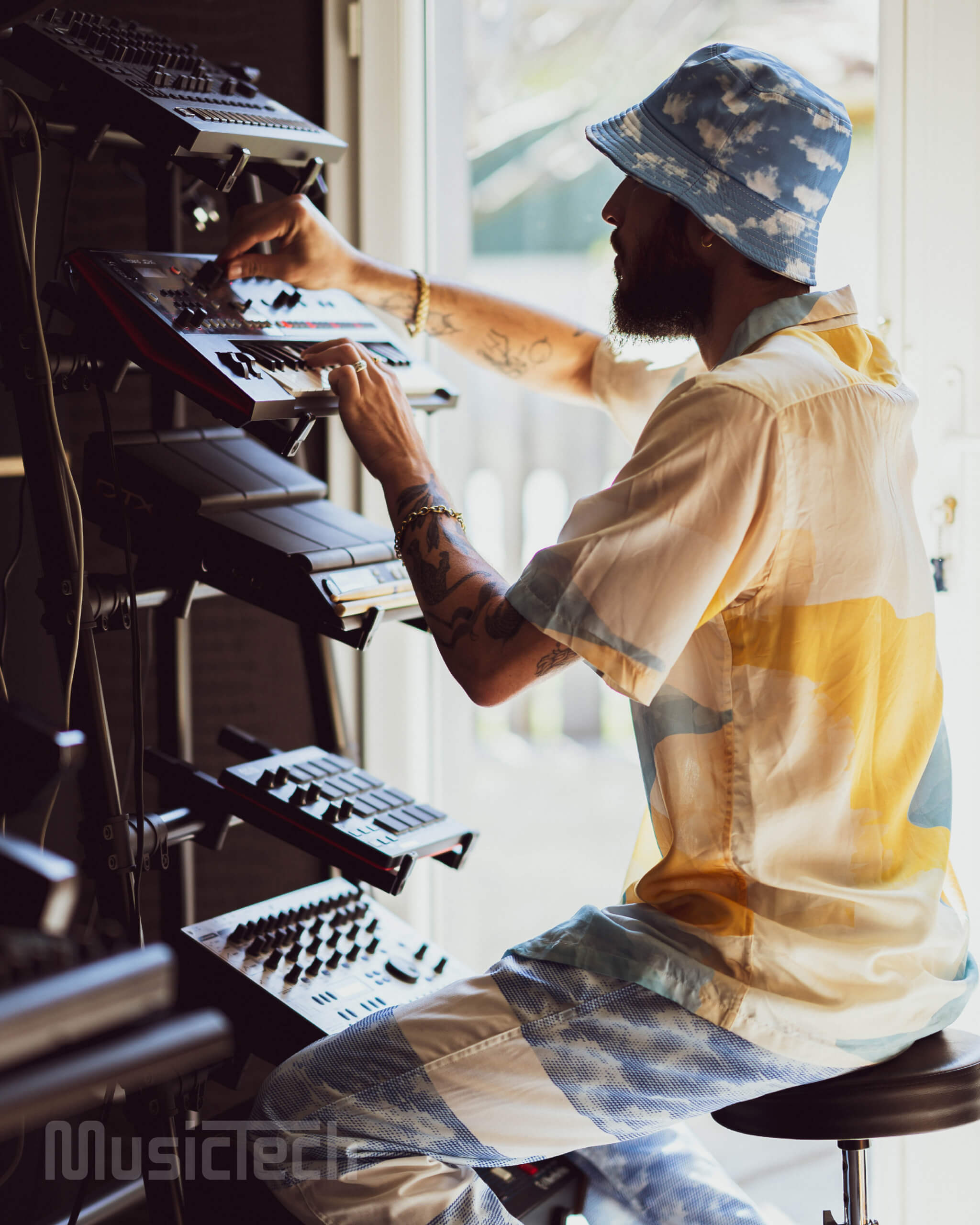
One of Bruno’s favourite parts about being a Folamour fan is being able to hear how he’s developed. Listening to his earlier works, he sometimes regrets that his skillset wasn’t as refined as it is now; that he can’t go back and change the mix of a track to make it even better.
“But most of the time,” he adds, “I’m really proud that you can listen to my first releases, go through my discography, and feel the evolution and hear the skills getting better. I think every album that I do is much better and requires much more skills than the one before. So it feels like I’m always bringing more and offering more to people.
“I love being an artist whose evolution and growth you can hear. It’s really important for me, and I think it also gives a lot of confidence to young artists. Because when I was a younger artist, everybody felt so good right away, you know. I was like, ‘wow, they must have been amazing from the first track they ever made’. But the truth is, we get better with time.”
In Folamour’s case, one means of becoming better was to incorporate fewer samples in his music and play more instruments himself. For him, using samples felt like he was “trying to channel [other people’s] work into my own message and my own values, which was really limiting for me.”
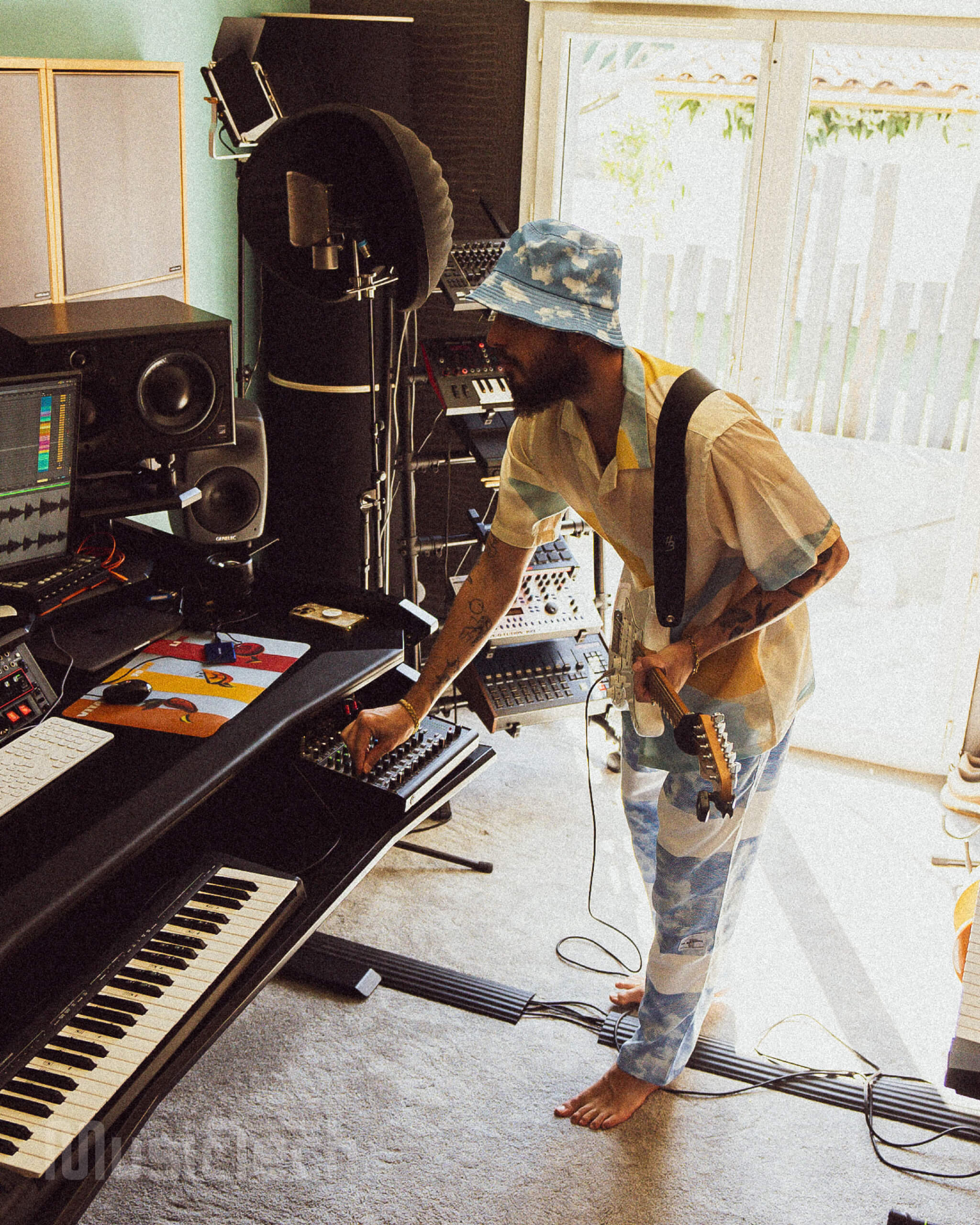
With synths, guitars, a Fender Rhodes and a host of plugins at his disposal, he continues to experiment and learn how to capture the exact sound he wanted – even if he still feels like he’s a newbie and not a “legit” performer.
“I took time to make this album because I wanted to try a lot of things,” he says. “I tried so much editing on my vocals that I didn’t do before; so much editing on equalisation – doing it a weird way – or putting choruses on some instruments that aren’t supposed to [have it]. I tried many things on the album and I’m really happy because so many things I like most about the album are things that I would have never done with my education about music.
“But I still feel like a beginner. I always feel new when I’m recording my own vocals because I still don’t feel legit enough as a vocalist. So every time I record my vocals, I feel like it’s the first time I’m doing it and I’m super anxious, and I want to do everything the best I can. So I still feel like a beginner in many situations.”
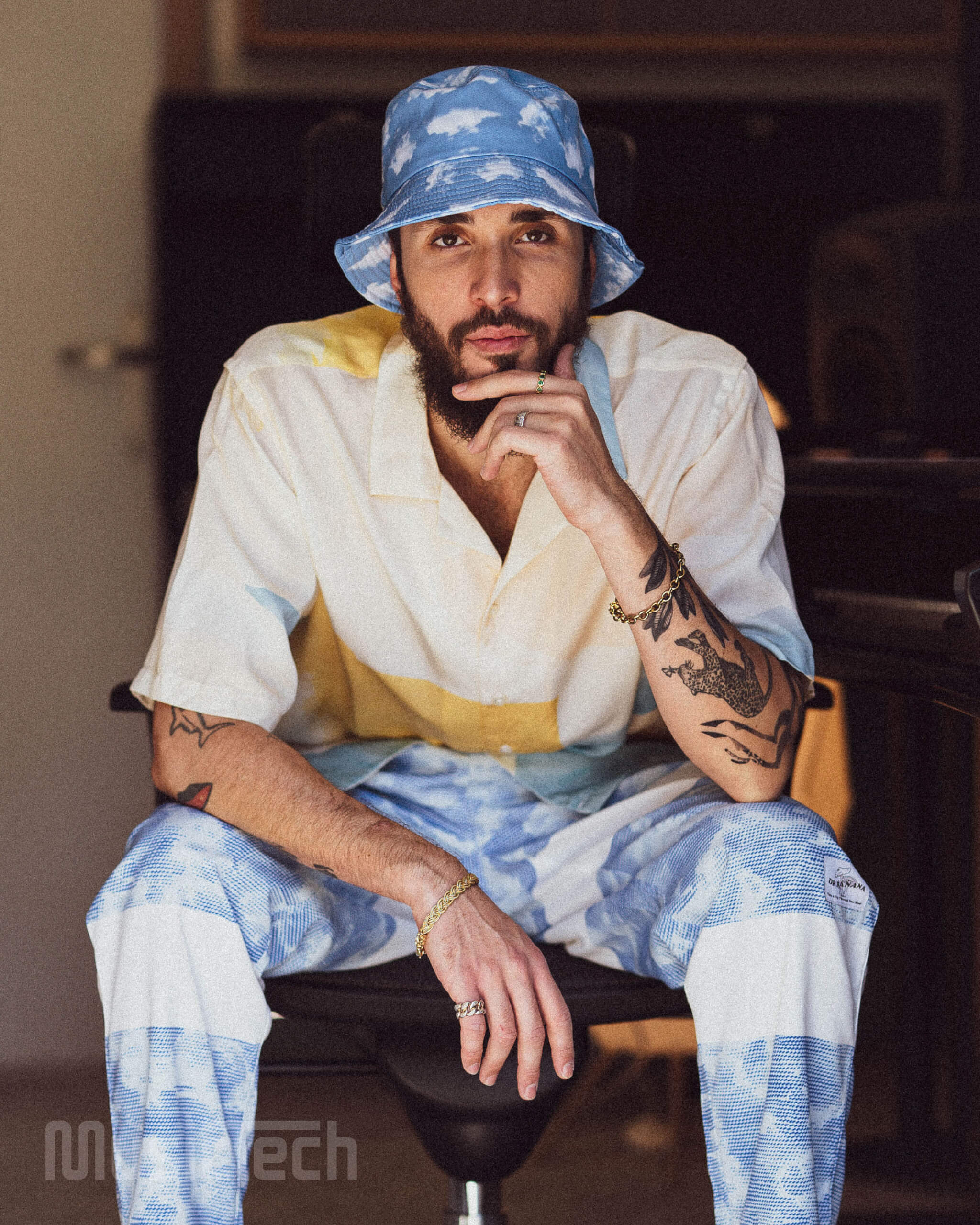
Sampling is, of course, still a major passion of Bruno’s. He alludes that there are a few “secret” samples in Manifesto, and that he loves the sonics of older records. To introduce an “old-school” feel into his original works, he’s making the most of his vintage gear.
“Most of the time, my old-school sound comes from the limitation of my gear. I’m using a Roland Juno 2 – it’s a really old synth that sounds really 80s – and I have a Rhodes. And I think overall, not being hi-fi in my way of recording music; not using modern skills to make everything sound so bright and perfect. In my editing, I really like imperfections; I really like leaving a lot and not equalising too many harsh frequencies.”
In addition, the way Bruno creates his music invites imperfections. He’s recently taken to social media to share some of his “live jams,” which come across as on-the-fly improvisations of a track. Built around loops and sparks of ideas, however, he explains that “they’re not improvised in the like old school meaning of the way. But they’re just moments in my studio of me, like, tripping on my tracks. I think I’ve always produced music that way.”
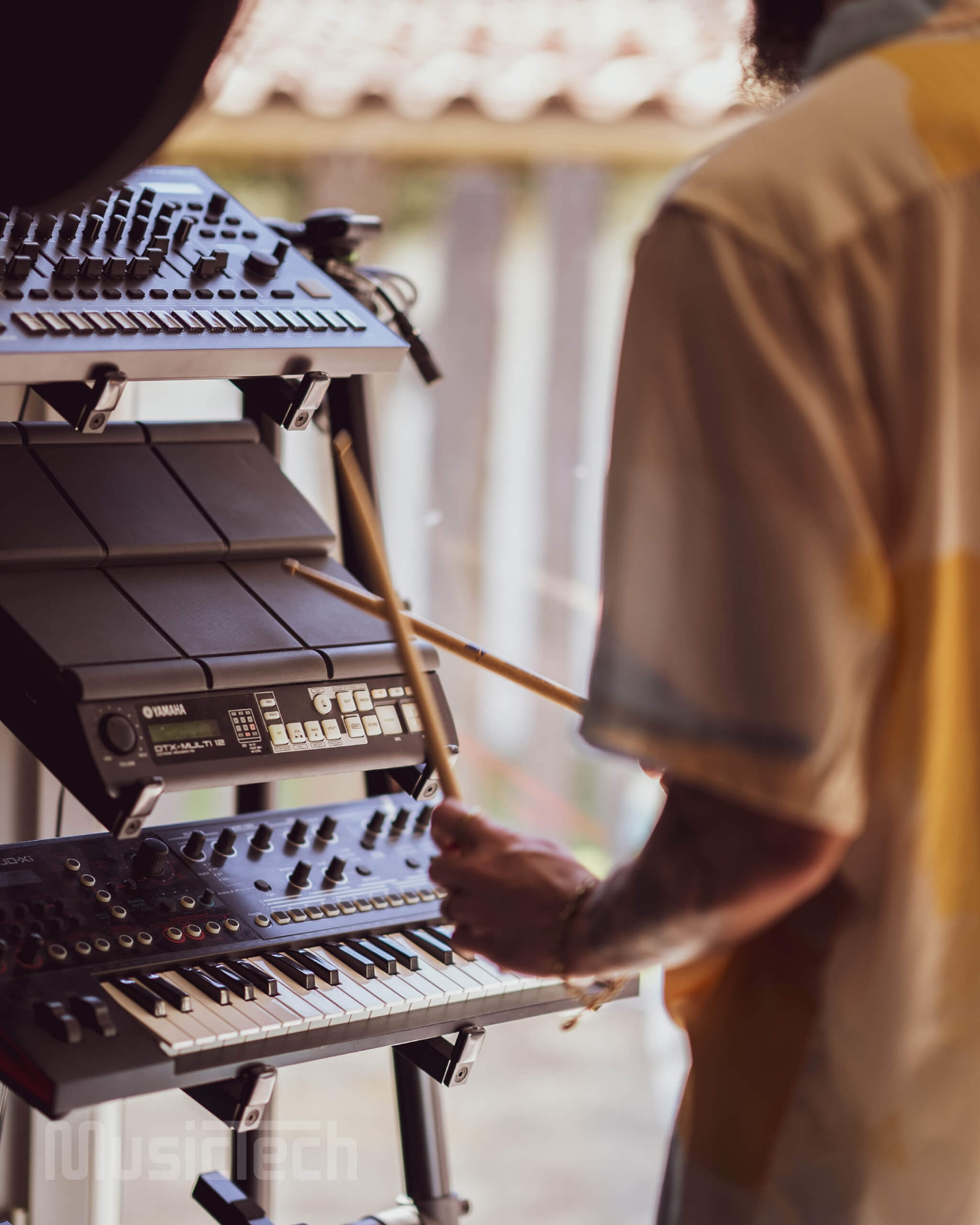
At a time where artists are now expected to be full-blown content creators and omnipresent on social media, Bruno finds it prudent to remind his fans that he’s not just a DJ. “It’s so easy for people to see me as a DJ because most of my life is touring. But the truth is, in my heart, if I had to do one thing for the rest of my life, it would be to be in the studio making music.”
But, of course, Folamour is an influential DJ. A flamboyant host of his own parties and a strong headliner at other shows, he’s an act you’d not want to miss. And, in part, it could be thanks to a Boiler Room set he played in 2019, where his mixing into ABBA’s Gimme! Gimme! Gimme! (A Man After Midnight) became a moment for the Boiler Room history books. However, in some ways, he regrets that it became one of his most celebrated highlights.
“Sometimes I’m just sad that I know some people in the world think that it was just this moment. I just regret that, because people who come to my shows know that we have moments like this every weekend. So I sometimes just regret that people think that they require a famous anthem to make people go crazy like this because it’s not the truth. People can go crazy on so many things.
“For instance, in the album, Poundland Anthem – every time I play Poundland Anthem, people are going absolutely insane on that track. So, yeah, I just regret that this moment was defining, in a way of like, ‘Folamour can bring this energy when he’s playing that kind of song’. But the truth is, I do it with many songs.”
As he continues to grow, Bruno wants to find a balance between a live jam-style performance and a party-filled DJ set for his future shows. He hopes to find his feet in that arena soon. But, with Manifesto, Bruno has become at peace with who he is as a producer, a musician, and a person.
“I can finally show who I am as an artist, with all my sides. And I have to agree with everything I am.”
Stream Folamour’s latest track, Voyage here.